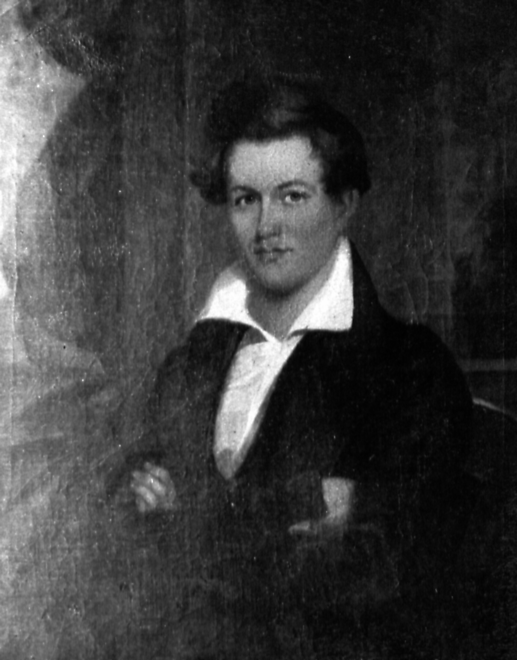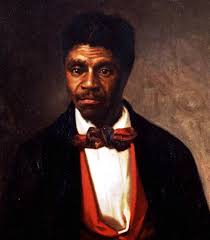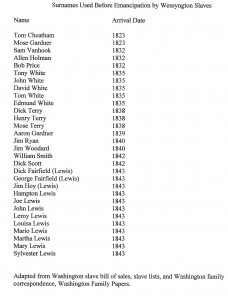Archive for the ‘Plantation Life’ Category
Wednesday, April 7th, 2010
The following story sheds light on the impact of the Transatlantic slave trade on the lives of native Africans. Some of these slaves ended up on the plantations of the Blow families.
I found this story while searching through a Sussex County deed book looking for genealogical information and noticed the names of several slaves. What stood out most were the names of some of the slaves: August, September, June, April, Caesar, and Quaco. I then thought these were likely Africans. Some slave owners gave Africans the names of the months of the year or days of the week. Planters did not realize in some African cultures children were named for the days of the week they were born on, thereby continuing an African tradition. Names such as Samba, meaning born on Monday, which was later, corrupted to Sambo.
The plight of the Africans was revealed in detail in a Virginia court case that lasted eighteen years. The story began in 1781 during the Revolutionary War. John Wigfall owned a large plantation at Wambaw on St. Thomas Parish in South Carolina. During this time, Wigfall was a Loyalist to Britain and was banished from the colony and had his property confiscated which included his slaves. At the same time, Captain John Singletary was issued a commission as a privateer in his cutter Victory. His commission ordered him to take as prize any British property. Captain Singletary and a small crew set out in rowboats up the Santee River and landed at Wigfall’s plantation, where they captured thirty-four of his slaves: April, Will, August, Dolly, September, Wally, Philander, Philis, Caesar, Horah, Scipio, Cloey, Daniel, Santon, Will, Neppy, June, Dianah, Pegg, Binah, Jenny, Peter, Cyrus, Duke, Flora, Limbrick, Pharo, Toby, Nanny, Sabina, Rosanna, Carolina, Wallis, and Quashilla.[1][1] The slaves at first were taken to Beaufort, North Carolina.
Although Wigfall was to be banished, he was granted leniency because he pleaded poor health and a large family to support and was allowed to remain in South Carolina. Thus, Wigfall made immediate application for the return of his slaves, as a Court of the Admiralty convened in New Bern and ruled that the slaves were a fair prize. They were declared property legally condemned by the court.
After discovering that Beaufort was threatened by the British, Singletary took the slaves to Virginia and sold them to four planters: Richard Blow of Sussex County, who was the nephew of Colonel Michael Blow, Colonel Benjamin Baker of Nanesmond County, Captain Sinclair in Smithfield, and William Hines of Southampton.
Wigfall was informed of the whereabouts of some of the slaves and managed to steal back a few of them, although some of their names had been altered to conceal their identities. Wigfall and his son and the plantation owners had several heated disputes over the ownership of the slaves.
In 1792, John Wigfall gave his friend James Warrington of Richmond power of attorney to recover his property, to no avail. In 1798 his son Joseph, who was the executor of his estate pursued the case. The judgment in all matters of the case except the ownership of the slaves was in favor of the defendants. However, each purchaser had to pay Wigfall for the use of the slaves during the time they were in Virginia.
Some forty years later some of the Africans were still living on Richard Blow’s plantation in Sussex County called Tower Hill. An 1830s register of slaves for Tower Hill lists August, Tember (September) and April, who was also called Joe, (possibly a shortened version of the African day name Cudjo) as being African Negroes. They died in 1832, 1826, and 1829 respectively, ranging in age from 60 to 80.[2][2] Their names first appeared on tax lists for 1784 for Richard Blow when they were purchased.[3][3]
August probably suffered the greatest loss of all the Africans. According to descendants of the Blows, after August learned English he and the other Africans related the story of their capture and voyage from Africa. August informed the Blow family that his father was an African king and he was next in line to succeed him to the throne but was betrayed by a jealous uncle who sold him to slave traders so he could rule as king. Instead of living the life of African nobility, August was condemned to a life of American servitude.
Tags:African American History, African History, African Names, African naming patterns, African Slavery, Africans in America, Beaufort, Benjamin Baker, Day Names, James Warrington, John Singletary, John Wigfall, Loyalist, Michael Blow, Middle Passage, Nanesmond County, NC, New Bern, Plantation Life, plantation slavery, Revolutionary War, Richard Blow, Richmond Virginia, SC, slave trade, Southampton County Virginia, Southern Plantations, St. Thomas Parish, Sussex County Virginia, Tower Hill Plantation, Transatlantic Slave Trade, Triangular trade, VA, Wambaw, Wigfal vs Blow, William Hines
Posted in Civil War, Genealogy & DNA, Interviews, Introduction & Personal, Plantation Life | Comments Closed
Thursday, March 4th, 2010
The Washingtons of Wessyngton Plantation reviewed in Nashville City Paper by Todd Dills. Click here to see review.
Tags:African American History, Ann Nixon Cooper, black history, Black History Month, family history, family tree, Genealogy & DNA, Nashville Tennessee, plantation slavery, Roots, Tennessee history, Tennessee slavery, Washington family, Wessyngton Plantation, Who Do You Think You Are
Posted in Book Tour & Reviews, Civil War, Current Events, Genealogy & DNA, Interviews, Introduction & Personal, Plantation Life | Comments Closed
Tuesday, February 9th, 2010
The Washingtons of Wessyngton Plantation: Stories of My Family’s Journey to Freedom has been released in trade paperback and is an excellent resource for teachers and educators. The book chronicles the African American experience from slavery to freedom. It has more than 100 photographs and portraits of African Americans who were once enslaved. The book covers many aspects of plantation slavery, the Civil War, Reconstruction, Jim Crow, Genealogy, and DNA testing.
http://books.simonandschuster.net/Washingtons-of-Wessyngton-Plantation/John-F-Baker-Jr/9781416567417
Tags:African American Genealogy, African History, American History, American Slavery, Black Genealogy, black history, Civil War, DNA Testing, Genealogy & DNA, Jim Crow, plantation slavery, Reconstruction, slave trade, Southern Plantations
Posted in Book Tour & Reviews, Civil War, Current Events, Genealogy & DNA, Interviews, Plantation Life, Research | Comments Closed
Saturday, December 26th, 2009

The history of the Alamo is an important part of American history and American lore. Joseph George Washington was a participant in the defense of the Alamo.
Joseph was the son of Andrew Washington, brother of Joseph Washington, who founded Wessyngton Plantation. He was born in 1808 and lived in Robertson County, Tennessee. Joseph was described as a striking, tall figure, about six feet high, tolerably stout build, tolerably dark complexion, dark eyes and dark hair.
In 1833, Joseph George sold his uncle a slave Joe. In December of 1835, he sold three more slaves to his brother Richard Washington for $830, before he travelled west to Texas. We do not know why Joseph joined in the fight for the Alamo. It could have been that the Republic of Texas offered land to men who helped win its independence from Mexico. Another reason could have been he was seeking an adventure as he went with other young men from Tennessee and nearby Kentucky.
In 1836, during the 12 day siege by Mexican troops under the command of Santa Anna, Joseph George Washington was killed. Within the Washington family and Alamo lore he became known as “Alamo Joe.”
Tags:Alamo, Alamo Joe, Andrew Washington, Battle of the Alamo, Davy Crockett, Joseph George Washington, Joseph Washington, Mexico, Republic of Texas, Richard Washington, San Antonio, Santa Anna
Posted in Current Events, Genealogy & DNA, Interviews, Introduction & Personal, Plantation Life, Research | Comments Closed
Tuesday, December 22nd, 2009

I was deeply saddened upon learning that my dear friend Mrs. Ann Nixon Cooper had passed away at her home on Monday evening.
I first became acquainted with Mrs. Cooper in 1996, when she was 94 years young through my genealogical research on Wessyngton Plantation, which she also had family ties to.
Mrs. Cooper was a very beautiful person and I treasured our friendship over the years. She was always very loving and kind when I visited her and also very helpful in providing me with information.
Mrs. Cooper lived a very long, productive and interesting life. I loved to listen to stories about her childhood in Tennessee and her adult life in Atlanta. She was so sharp it was hard to believe that she was more than 100 years old.
Mrs. Cooper became known worldwide last year when CNN television news chronicled her voting early for then Senator Barack Obama.
Although Mrs. Cooper became well known for voting for President Obama, she led a very interesting life before then which is told in her forthcoming book A Century and Some Change: My Life Before the President Called My Name.
I will truly miss my dear friend.
With Love,
John
Tags:A Century and Some Change, Ann Nixon Cooper, Atlanta Georgia, Barack Obama, CNN News, Don Lemon, Huffington Post, John Baker, Karen Grisby Bates, Michelle Obama, My Life Before the President Called My Name, New York Times, President Obama, Washington family, Washington Post, Wessyngton Plantation, Yes We Can
Posted in Civil War, Current Events, Genealogy & DNA, Interviews, Introduction & Personal, Plantation Life, Research | Comments Closed
Monday, December 21st, 2009

In 1831, Nat Turner led the largest slave rebellion in the history of the United States. Turner, born in 1800 in Jerusalem, Southampton County, Virginia. Wessyngton Plantation’s founder Joseph Washington lived in Southampton County before he came to Tennessee. Many of the slaves on Wessyngton Plantation were brought by Joseph to Tennessee.
In Virginia, Turner, a self-proclaimed Baptist minister, was known as “The Prophet” to the enslaved African Americans and often conducted services for them. He claimed to be given visions by God, and that he was ordained to lead his people to freedom. Unlike most slaves and many whites, Turner was able to read and write.
Turner’s group of followers was composed of more than 50 fellow slaves and free blacks. During the insurrection of 1831, the group went through the countryside of Southampton County killing 55 men, women, and children. The insurrection lasted for two days before the local militia put it down. Turner and several of the leaders were executed; others were transported out of the area.
The Turner rebellion put fear in the hearts and minds of slave holders throughout the South, which led to laws further restricting the activities of enslaved African Americans and free blacks.
The revolt influenced the Tennessee legislature to pass laws in 1831 that prevented more free blacks from entering the state. Any person emancipating a slave had to send him out of the state. When the new constitution in Tennessee was written in 1834, free blacks were denied voting privileges.
Tags:Insurrection, Jerusalem, Nat Turner, Plantation Rebels, plantation slavery, Rebel Slaves, slave rebellion, Slave Revolt, slave trade, Southampton County Virginia, United States slavery, Virginia, Virginia Slavery
Posted in Civil War, Genealogy & DNA, Interviews, Introduction & Personal, Plantation Life, Research | Comments Closed
Monday, November 30th, 2009

5th Grade Class at Gateview Elementary in Portland, TN
On November 20th I had the honor of delivering a presentation about my book The Washingtons of Wessyngton Plantation to the entire fifth grade class at Gateview Elementary School in Portland, Tennessee. More than 100 students attended. Prior to my visit the students had studied the Civil War, which tied into my program. The students were very attentive and had many questions. Following the presentation many of the students expressed an interest in tracing their genealogy.
Tags:Civil War, Gateview Elementary School, Genealogy & DNA, history, Portland Tennessee, Tennessee history
Posted in Book Tour & Reviews, Civil War, Current Events, Genealogy & DNA, Interviews, Introduction & Personal, Plantation Life, Research | Comments Closed
Tuesday, November 24th, 2009

In 1847 an enslaved African American, Dred Scott, went to trial to sue for his freedom. This case, which later became known as Dred Scott v. Sanford, impacted the citizenship of all African Americans throughout the United States.
Dred Scott was born a slave in Southampton County, Virginia and was owned by Peter Blow. Peter Blow was the great-nephew of Colonel Michael Blow who owned my ancestors before they were brought to Wessyngton Plantation by Joseph Washington.
Scott was taken to Alabama by the Blow family and later to St. Louis. After Peter Blow’s death in 1832, Scott was bought by an army surgeon Dr. John Emerson who took him to Illinois and the Wisconsin Territory.
Scott’s stay in Illinois and Wisconsin, where slavery was prohibited, gave him the legal standing to make a claim for his freedom. The abolitionists encouraged him to sue for his freedom. The case and appeals took ten years. In March 1857, the United States Supreme Court declared that all blacks, slaves as well as free blacks, were not, and could never become, citizens of the United States.
The decision was a victory for southern slaveholders, while northerners were outraged at its outcome. The Dred Scott case influenced the nomination of Abraham Lincoln to the Republican Party and his election that led to the South’s secession from the Union and ultimately the freedom of all African Americans.
Peter Blow’s sons, who had grown up with Dred Scott, helped him pay the legal fees for his lengthy case. After the Supreme Court’s decision, they purchased Scott and his wife and then emancipated them.
Dred Scott died nine months later—a free man.
.
Tags:Abraham Lincoln, Blow Family, Civil War, Confederate States, Declaration of Independence, Dr. John Emerson, Dred Scott, Dred Scott Decision, Frederick Douglass, Free Territory, Joseph Washington, Michael Blow, Missouri Compromise, Peter Blow, Runaway Slave Law, Scott vs. Sanford, Slave Laws, Southampton County Virginia, St. Louis, Supreme Court, Union Army
Posted in Civil War, Current Events, Genealogy & DNA, Interviews, Introduction & Personal, Plantation Life, Research | Comments Closed
Tuesday, November 17th, 2009

On Tuesday November 4, 2008, President Barack Obama reflected on the life of Mrs. Ann Nixon Cooper: “she’s seen throughout her century in America─the heartache and the hope; the struggle and the progress; the times we were told we can’t; and the people who pressed on with that American creed: Yes, we can.”
Empowered and energized by this history-making presidential campaign, Mrs. Cooper told her story in her own voice. A Century and Some Change is the portrait of an American who lived a rewarding and culturally rich life.
Mrs. Cooper was raised in Nashville in the home of her aunt-in-law Joyce Washington Nixon, who was born a slave at Wessyngton Plantation during the last days of the Civil War. I had the honor of interviewing Mrs. Cooper and recording her memories in my book The Washingtons of Wessyngton Plantation, which she mentioned in her book.
A Century and Some Change: My Life Before the President Called My Name will be released on January 5, 2010 by Atria Books, a division of Simon & Schuster. Mrs. Cooper passed away on December 21st at her home, nineteen days short of her 108th birthday.
Order A Century and Some Change by clicking the icon of her book cover
Tags:A Century and Some Change, Acceptance Speech, Al Cooper, Albert Berry Cooper II, Allen Berry, Andrew Young, Ann Nixon Cooper, Atlanta Georgia, Atria, Atria Books, Barack Obama, Before the President Called My Name, Berry Family, Bessie Dozier, Book: A Century and Some Change, CNN, Cooper Family, Coretta Scott King, Don Lemon, Elmwood, First Lady Obama, Frank Berry, George Washington, Granville Washington, Irene Nixon, Irene Washington, James Dozier, Jerry Nixon, John Baker Jr., Joyce Cooper Bobo, Joyce Washington Nixon, Karen Grigsby Bates, Martin Luther King Jr., Meharry, Michelle Obama, Nashville Tennessee, Nixon Family, Obama family, President Barack Obama, President Obama, President Washington, Presidential campaign, Presidential Election, Simon & Schuster, Stories of My Family's Journey to Freedom, W. W. Berry, Washington family, Washingtons of Wessyngton Plantation, Wessyngton Plantation, Yes We Can
Posted in Book Tour & Reviews, Civil War, Current Events, Interviews, Introduction & Personal, Plantation Life, Research | Comments Closed
Tuesday, November 10th, 2009

Surnames of Wessyngton Slaves
Slaves were usually known by their first names, especially on small farms with few slaves. Plantation owners rarely recorded their slaves with surnames unless they had several individuals with the same first names. For that reason the use of surnames by slaves was far more common on large plantations where more people were likely to have the same given names.
Due to Wessyngton Plantation having such a large enslaved population many African Americans are listed with their previous owners’ surnames as early as the 1820s.
Slave bills of sale and other documents in the Washington Family Papers collection details the origins of many of these African American families.
The list above documents the names African Americans on Wessyngton Plantation who used surnames prior to emancipation and the date of their arrival on the plantation.
Tags:African American History, African American Surnames, African Slavery, Day Names, Given Names, Naming Patterns, Naming Practices, Plantation Records, plantation slavery, Slave Bills of Sale, Slave Names, Slave Surnames, slave trade, Tennessee slavery, United States slavery, Virginia Slavery
Posted in Civil War, Current Events, Genealogy & DNA, Interviews, Introduction & Personal, Plantation Life, Research | Comments Closed






